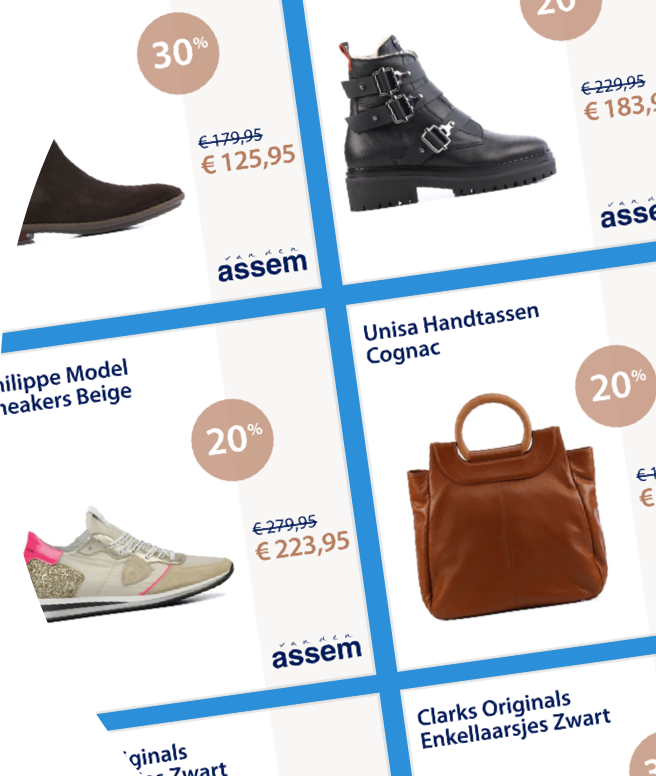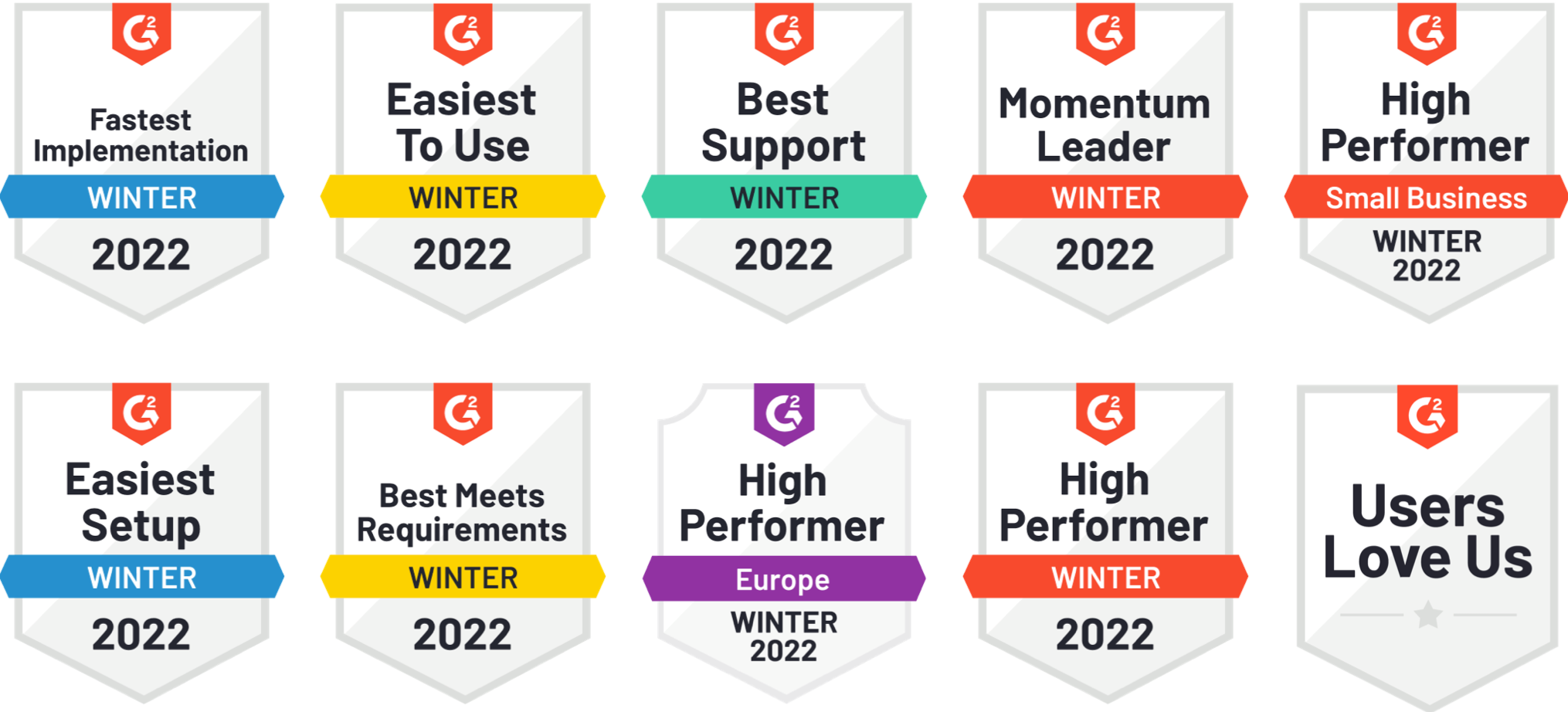Marketing is all about reaching your audience with the right message at the right time. It’s been this way since, well, always.
Marketers of yesteryear used to distribute shopping catalogues in the months before Christmas or advertise on billboards with major discounts on Black Friday. Today, we know this marketing phenomenon also works online.
In fact, it works really, really well.
In 2018, holiday e-commerce sales in the United States were responsible for $126 billion, a 16.5% increase since 2017. And in the weeks before Saint Nicholas Day, the average weekly turnover for e-commerce in The Netherlands increased by 31%.
No wonder that most ad budget is spent during the holidays and other key marketing moments. That’s why it is important for all marketers and e-commerce managers to be on top of their game before and during these moments.
Why are marketing moments so important?
Advertising experts believe we are exposed to roughly 4.000 to 10.000 ads per day. We only notice less than 100 of them. That’s why - in order to drive sales with online marketing - you need to be relevant at all times. And when you define certain topics that almost your entire audience talks about at the same time, this is a very efficient way to be relevant on a large scale.
Examples of yearly marketing moments are major international holidays such as Christmas, New Year’s or Easter, but also local events such as the Dutch Kings Day and the German ‘Oktoberfest. Tax time, sale, graduation and the beginning of seasons are also very common.
How to define relevant moments
A rewarding online presence throughout the year starts with finding relevant moments for your audience. Use smart, online listening tools to see what they are talking about throughout the year.
It is important to be creative when it comes to defining marketing moments. When you advertise on major moments such as Christmas, other brands will probably do the same. As a result, CPC is much higher.
When you incorporate offbeat moments into your marketing calendar, you will generally exclusively ‘own’ them. This results in a lower CPC and more brand presence throughout this period of time.
So, aside from the major moments, always choose a handful of exclusive moments that suit your brand and your audience. But don’t pick these moments randomly. We come across a number of brands who use the most random marketing moments in their calendar - all for the sake of being present.
If you need relevant inspiration, take a look at the Facebook Ad Library. Here you can see what your competition does. It’s also smart to define your own marketing moments when you still have budget after spending an amount on the usual moments.
Plan and develop in time
When you have defined relevant moments, fill up your marketing calendar. Subsequently, develop and plan your creatives well ahead. Give your creative team enough time to come up with outstanding designs.
For example, calculate how much time you usually need to create ads and increase this significantly. Then, set up targeting and, since you are spending so much at a peak moment like this, make some extra versions of your ads for testing.
On time means you need to be a little early. For example, people are anticipating Black Friday days before the day actually starts, so you might want to benefit from having your ads up early to spike interest.
When live, don't be afraid to let your campaign run a bit longer than the actual 'moment'. Just wait until your numbers decline. It is common that you still see a favorable ROI on Christmas ads between Christmas and New Year’s Eve.
Make sure you evaluate your learnings and document them for the following year. Add the document in a calendar item, so you won’t forget it!
One year of marketing moments by Lucardi
What does it look like when a brand implements marketing moments throughout their annual marketing plan? To visualize this, we’ve asked our client Lucardi if we could share a few of their marketing moments of 2018/2019 with you.
Let’s take a look.
Autumn 2018
Autumn annually introduces the need for a ‘new’ wardrobe. Lucardi welcomed the season with several display ad sets and a simple copy line: ‘Hello autumn’.
Black Friday 2018
The last few years, Black Friday is getting more and more popular in The Netherlands. Lucardi responded to this trend by publishing a display ad set that promoted ‘now or never’ discounts on 9 types of jewelry.
Saint Nicholas Day 2018
The Dutch Children’s holiday Sinterklaas revolves around gift giving. Lucardi created display ads that showed kids with jewelry and a simple copy line that roughly translates to ‘Thank you, Santa’.
Christmas 2018
For Christmas, the brand highlighted jewelry collections in several display ad sets. Smart move, since the three weeks between Saint Nicholas Day and Christmas Eve ensure a 34% higher online weekly turnover than in a regular week.
Valentine’s Day 2019
In 2018, 31% of all Dutchies celebrated Valentine’s Day. 61% of them buys their loved one a gift. For Lucardi, this is a major marketing moment and it makes perfect sense to add this day to their online marketing calendar.
Carnival 2019
At first glance, shopping and carnival don’t seem to go together. But Lucardi found a relevant hook: the number 11. Traditionally, the number 11 represents ‘carnival madness’. An 11% discount therefore is quite relevant, and chances are CPC is a lot lower compared to Valentine’s Day.
Easter 2019
During Easter, a lot of people have time off. This often leads to spending time online. Lucardi responded to this by creating a display ad set that offered a discount for shoppers during Easter. The CTA emphasized urgency: the offer only applies during this weekend.
King’s Day 2019
King’s Day is another marketing moment. While not all brands would link shopping to celebrating the King’s birthday, Lucardi decided to give a discount during the entire weekend.
Mother’s Day 2019
When it comes to gift giving on Mother’s Day, the Dutch are quite modest. Research shows that we spend an average of €11 to €25 on mom. Lucardi selected this moment to display products with a suiting price tag: €19,99.
Father’s Day 2019
When you know your audience shops for Mother’s Day, it is an equal opportunity to incorporate Father’s Day into your annual marketing plan. Lucardi therefore promoted gifts for dad too, based on the insight that their audience is eager to shop for their loved ones.
Summer 2019
Summer is here: another introduction to a new season and a new jewelry collection. With a sunny discount and a light-hearted call to action, Lucardi drives its audience to visit the webshop.
Our advice
If you want to get most out of your budget, draft your annual marketing calendar around these moments. It is a great opportunity to compare and derive insights over a longer period of time, while optimizing your ROI.

